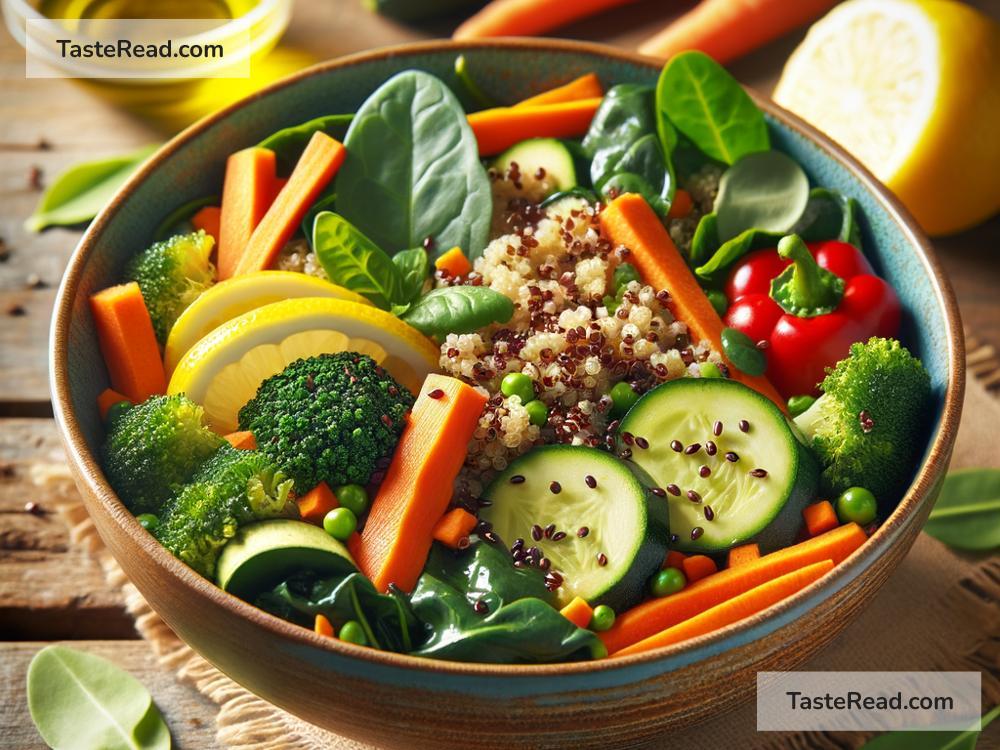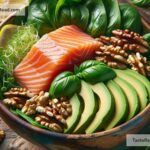Foods That Reduce the Risk of Irritable Bowel Syndrome (IBS)
Irritable Bowel Syndrome (IBS) is a common digestive condition that can cause discomfort such as bloating, stomach pain, diarrhea, or constipation. If you’re dealing with IBS symptoms, you might feel frustrated and wonder if there’s anything you can eat to feel better. The good news is that your diet plays an important role in managing the condition. Certain foods can help reduce the risk of IBS or ease your symptoms if you already have it. Let’s explore those foods and how they can support your gut health.
Understanding IBS and Your Diet
Before diving into specific foods, it’s important to understand IBS. Experts don’t fully know what causes it, but it is thought to involve issues with gut-brain communication, gut bacteria, and sensitivity to certain foods. While there’s no cure for IBS, eating the right foods can help reduce flare-ups, strengthen your digestive health, and provide relief.
If you suspect you have IBS, work with a doctor or nutritionist who can provide a personalized plan. Everyone’s body is different, so figuring out what works for you might take some time and experimentation.
Food #1: Fiber-Rich Foods (But Choose Wisely!)
Fiber is essential for digestion because it helps regulate bowel movements. There are two types of fiber: soluble and insoluble. If you have IBS, soluble fiber may be more helpful because it’s gentler on the stomach. Soluble fiber dissolves in water and forms a gel-like substance, which can soothe the lining of your gut.
Some great sources of soluble fiber include:
- Oats: Oatmeal and oat bran are gentle on your digestive system and can ease constipation.
- Apples and Pears: These fruits are rich in soluble fiber and can help normalize bowel movements.
- Carrots: A great source of soluble fiber that’s easy to digest and good for IBS.
Insoluble fiber, found in foods like whole wheat and nuts, can sometimes irritate the gut. So, while fiber is important, you might need to experiment to see how different types affect your body.
Food #2: Probiotic-Rich Foods
Your gut is home to trillions of bacteria, many of which are helpful for digestion. When the bacteria in your gut are out of balance, IBS symptoms can worsen. Probiotics are friendly bacteria found in certain foods that may help restore gut balance and improve digestion.
Foods rich in probiotics include:
- Yogurt: Look for plain, unsweetened yogurt that contains live cultures like lactobacillus or bifidobacterium.
- Kefir: This fermented milk drink is packed with probiotics that can help regulate the gut.
- Sauerkraut and Kimchi: These fermented vegetables provide gut-friendly bacteria and are great for digestion.
Adding probiotic-rich foods to your diet can support a healthy digestive system and reduce IBS symptoms, but start slowly if you’re not used to them.
Food #3: Low-FODMAP Foods
FODMAPs are certain types of carbohydrates that can be hard for people with IBS to digest. Foods high in FODMAPs (like garlic, onions, wheat, and some fruits) can trigger bloating, gas, and diarrhea. The low-FODMAP diet has been shown to help many people manage IBS symptoms.
Some low-FODMAP foods include:
- Bananas: Easy to digest and gentle on the stomach.
- Zucchini: A great vegetable option that’s unlikely to irritate your gut.
- Potatoes: Boiled or baked potatoes are low in FODMAPs and filling.
- Chicken and Fish: Lean proteins like chicken breast or canned tuna are gut-friendly options.
If you’re trying the low-FODMAP diet, it’s a good idea to work with a professional to ensure you’re still eating a balanced variety of nutrients.
Food #4: Herbal and Nourishing Teas
Certain teas and herbal infusions can be soothing for people with IBS and help minimize symptoms like cramping or bloating. The right tea can calm your stomach and reduce inflammation.
Some helpful teas include:
- Peppermint Tea: Peppermint has natural anti-spasmodic properties that can relax the muscles in your gut.
- Ginger Tea: Known for its anti-inflammatory benefits, ginger tea can ease nausea and bloating.
- Chamomile Tea: Chamomile is gentle and calming, great for those who struggle with stomach pain or stress-related IBS.
Stay hydrated and sip these soothing teas to complement your meals and improve digestion.
Food #5: Omega-3 Fatty Acid Foods
Omega-3 fatty acids are healthy fats that can reduce inflammation in the gut and support overall digestive health. They may help manage some IBS symptoms, especially if inflammation contributes to your discomfort.
Foods rich in omega-3 fats include:
- Salmon: A heart-healthy fish that’s also great for gut health.
- Chia Seeds and Flaxseeds: These tiny superfoods are a plant-based source of omega-3s.
- Walnuts: Healthy fats from nuts like walnuts can help calm inflammation in the digestive system.
Adding these foods to your diet may support your gut and reduce IBS symptoms over time.
Food #6: Hydrating and Gentle Choices
Staying hydrated is key to managing IBS symptoms, especially if diarrhea or constipation is a problem. Water, broths, and hydrating fruits or vegetables can help keep your system running smoothly.
Some hydrating choices to add to your meals include:
- Cucumber: Contains lots of water and is easy on the stomach.
- Melons: Watermelon and cantaloupe are sweet, refreshing options that won’t irritate your gut.
- Bone Broth: Rich in nutrients and easy to digest, bone broth is a soothing option if you’re having a flare-up.
Final Thoughts
Managing IBS is all about listening to your body and finding the foods that make you feel your best. Incorporating fiber-rich foods, probiotics, omega-3s, and hydrating options can help reduce your risk of IBS symptoms. If certain foods cause discomfort, try keeping a food diary to track what works for you and what doesn’t.
Remember, improving your gut health doesn’t happen overnight—it’s a journey. With patience and mindful choices, you can take control of your symptoms and enjoy eating without fear. Always consult a healthcare professional before making big changes to your diet. Here’s to a happy, healthy gut!


